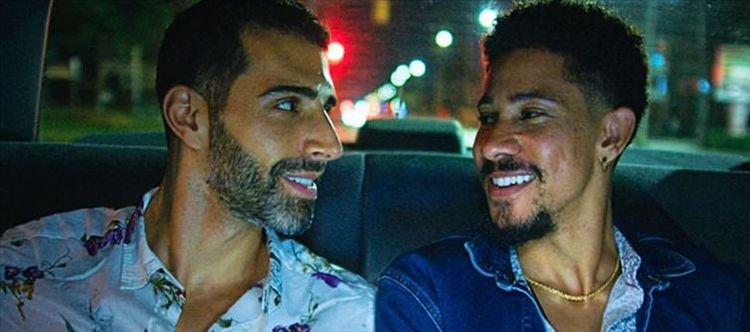
My Fake Boyfriend centres on Andrew Lonsdale, a stuntman on a corny soap drama who has an on-again, off-again romance with Nico, the show's star (Marcus Rosner). Jake (Sprouse) and Kelly (Hyland), two of his buddies, have had enough of their frequent breakups, so Jake decided to establish a fictitious internet boyfriend that would make Nico envious and aid Andrew in moving on. Things get problematic when Andrew starts falling for a genuine person, especially when the false lover, Cristiano, is named like the worldwide football player. When Andrew starts to fall for Rafi (Samer Salem), a cooking instructor and restaurant owner, he must deal with both his pretend boyfriend and Nico's persistent attempts to win him back.
Because so little queer art has been produced and disseminated as mainstream media, it is frequently held to impossibly high standards. Every film or television programme including queer tales is required to represent a group that is immensely diverse, which is an almost difficult endeavour and one that, when done incorrectly, stands out even more for its inadequacies. Fortunately, this is gradually improving, and Pride Month has seen a flood of new releases that thoughtfully explore many facets of LGBT existence. There should be more typical queer art; even while My Fake Boyfriend may not be the most nuanced representation of gay love, that doesn't make it a negative thing.
In a sort of dreamy rom-com logic that is ideal for its idealised image of New York City, the deepfake plot at the heart of My Fake Boyfriend comes together perhaps too effortlessly. Sprouse, who is more than game for the increasingly absurd scenarios Cristiano finds himself in, does a fantastic job of selling the Cristiano shenanigans. Another standout in the film is Jake's friendship with Heyland's Kelly, who demonstrates that the former modern family star still has the same sense of humour as she did on the popular ABC sitcom.




 click and follow Indiaherald WhatsApp channel
click and follow Indiaherald WhatsApp channel